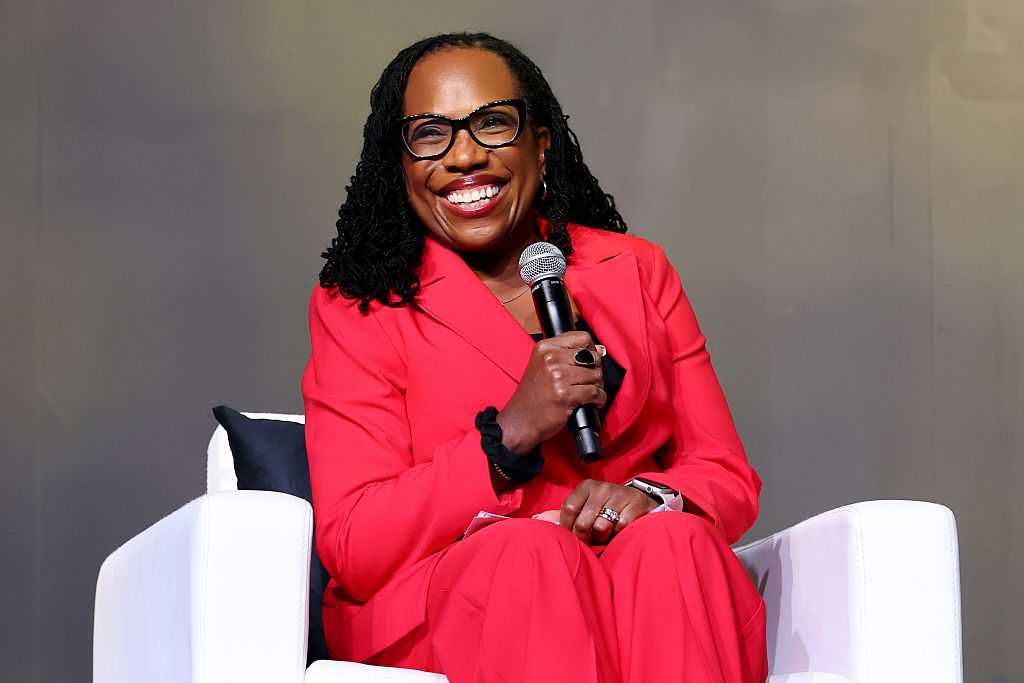Since it is Presidents Day, I thought it worth reminding ourselves that most of the Founders of this country regarded political parties with a mixture of fear and loathing. In 1796, in his Farewell Address, Washington urged that ‘a wise people’ ‘discourage and restrain’ the ‘spirit of party’. Alexander Hamilton warned that political parties were a ‘most fatal disease’. And Madison, in Federalist 10 and elsewhere, inveighed against the ‘violence of faction’, which was (as Bolingbroke had put it) the ‘superlative’ of party.
Bad luck. Parties installed themselves at the center of politics near the beginning of the Republic, and — as the poisonous relations between Jefferson and Hamilton (and Jefferson and Adams) attest — they were every bit as divisive as feared.
Still, the country survived. It has been an article of faith for many years now that a ‘two-party system’ is essential to the healthy work of our democracy.
In fact, as James Piereson noted somewhere, what we really have is a one-and-a-half-party system. There is one ‘regime party’, around which power accumulates, and a window-dressing party, which is occasionally allowed to win elections but which is never allowed to determine the center of gravity of our politics.
Since FDR, the regime party has been a wholly owned subsidiary of the Democratic party. Republicans can join the club, as junior members, and are given occasional leave to win elections, even presidential elections. But the levers of power and the determining spirit has largely remained a Democratic prerogative.
The election of Donald Trump may signal the beginning of change in that unwritten compact. We’ll have a better sense of that on November 4, 2020, assuming that the votes are competently counted. Should Trump win a second term, his efforts to ‘drain the swamp’ — which is just a homely metaphor for reverting those levers of power into different hands on the basis of a different understanding of how power is to be wielded — may be more than just another feckless attempt to ‘rein in big government’, et cetera, et cetera.
The best case, should Trump lose, is that America reverts to the reign of that democratic (and Democratic) despotism Tocqueville warned about, while also settling into demographic chaos, waning prosperity, and a decline in international stature.
That’s the best case. A much worse case is Bernie Sanders, whose platform puts me in mind of the early Christian polemicist Tertullian (160-220 AD). Tertullian’s rule of thumb was was ‘Credo quia absurdum’: ‘I believe because it is absurd.’ A similar level of energetic credulity is required in order to embrace what Sanders has on offer.
Just a few highlights: he wants to ban fracking, one of critical things that has made America energy independent and contributed to our astonishing prosperity since Trump took office ($12 trillion added to the stock market). He wants to impose a minimum wage of $15 per hour, whose immediate effect would be to eliminate tens of thousands of jobs.
Sanders wants to make college ‘free’ (i.e. he wants you and me to pay for it). He also wants to forgive all college debt — hard cheese on the slobs who worked hard to pay off their debt, and who knows what it means for the financial institutions that hold the debt (currently in excess of $1 trillion). He wants to eliminate nuclear power plants, restrict charter schools, raise taxes on the ‘wealthy’, sharply increase taxes on capital gains, and also tax wealth and financial transactions.
That’s in the morning. In the afternoon, he wants to eliminate the electoral college, ‘study’ reparations for Black Americans, and allow felons to vote even while incarcerated. At tea time, he wants to extend medicare to all and ‘slash’ defense spending. Then, like God on the seventh day, he will rest.
‘There is a great deal of ruin in a nation,’ Adam Smith told a young correspondent during the Revolutionary War. The commentator John O’Sullivan was right when he added, ‘especially this nation’. Nevertheless, Sanders’s program, if enacted, would test the limits of even Adam Smith’s optimism.
Speaking frankly, I may say that I do not expect that to happen. I believe that America’s sense of self preservation, though shaken, is still too robust to sign up for Sanders’s suicidal adventure. Notwithstanding the threatening animadversions of Sanders’s operatives such as Kyle Jurek, an Iowa field director who looks forward to the establishment of ‘gulags’ for the ‘reeducation’ of ‘nazis,’ i.e., people with whom he disagrees about politics. If the term ‘gulag’ sounds scary, rest easy. Stalin’s gulags, Jurek declared in an unguarded moment, were ‘actually a lot better than what the CIA has told us.’ Inmates, he said, were offered a ‘living wage’ and ‘conjugal visits’. At bottom, they were benign ‘re-education’ facilities. Alexandr Solzhenitsyn was unavailable for comment. (The New York Times, though, has been on this case: remember their column on ‘Why Women Had Better Sex Under Communism’?)
But if Bernie Sanders isn’t going to get the prize of the presidency, who will? I think it will be Trump by an embarrassingly large margin. But whom will he face? I think the top two choices at the moment are Sanders and Michael Bloomberg, the $60-billion born-again Democrat and nemesis of large sodas and salt.
My friend Douglas Schoen, a former pollster for Bill Clinton and canny observer of the political scene, is all in for Bloomberg, but warns that the Democratic party is ‘at war with itself’. ‘It is critical,’ he says, ‘that the Democratic party coalesces around a cohesive, inclusive, pro-growth message centered on jobs, the economy, health care and advancing equality of opportunity, while also highlighting President Trump’s own policy failures in these areas.’
Good luck with that last bit, since the economy under Trump has been on fire, not only with extraordinary stock market gains but also the lowest unemployment rate in decades, the lowest minority unemployment rate ever, rising wages (especially at the lower end, aka ‘advancing equality of opportunity’), easing the regulatory environment for businesses, and enacting policies that have brought the cost of prescription drugs down ‘at rates not seen since the 1960s’.
Schoen goes on to describe Trump’s $4.8 trillion budget as ‘Draconian’, a sum that would have surprised old Draco, were he around to ponder it. Draco might have been mollified by some of Bloomberg’s ideas, however. I can see Bloomberg’s insistence that we deny most medical care to the elderly bringing a smile to Draco’s face, and I doubt he would have found much to disagree with in Bloomberg’s support of stop and frisk, the practice of ‘redlining’ in making mortgage loans, or his insistence that ‘ninety-five percent of your murders and murderers and murder victims fit one M.O. You can just take the description, Xerox it and pass it out to all the cops. They are male minorities, 15 to 25.’ I am not sure what Bloomberg means by ‘M.O.’ (modus operandi) here, but I am confident that none of this will make its way into a new edition of How to Make Friends and Influence People.
I mention this not to register disagreement with Doug Schoen — I admire his pluck under admittedly difficult circumstances — but rather to float what I think is a novel idea for the 2020 election.
Schoen says that the Democrats must unite or ‘go down to defeat’. Unity seems very unlikely, despite Bloomberg’s pledge to support whichever candidate wins the nomination. My thought is this: why not, just for this election, heed the Founders’ warnings and eschew the evils of faction, expressed as vividly in the intramural Democratic vituperation as it is in the non-stop excoriation of Donald Trump. The Democrats should avail themselves of a well-earned rest and unite to support the man who has done so much for the US economy and minorities over the last few years. And if that is not sufficient reason, think what he has done for their biggest cheerleaders: the media, who have been given a whole new lease on life in their round-the-clock abuse of the president and all his works!
By all means, regroup for 2024. But this time, make a dignified retreat and support the inevitable. It will make you seem prescient and broadminded, which will go far in soothing the sting of defeat. Just a thought.



























